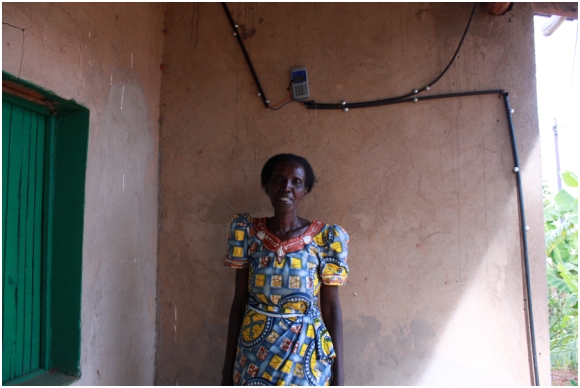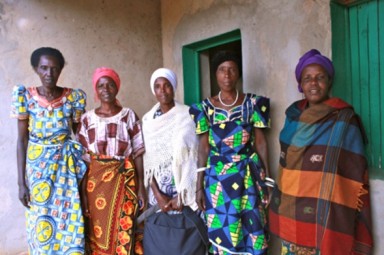
Esperanz was living in Ntarama during the genocide. When it started, she began grouping together with neighbors. After three days they decided to separate, some of them (including her husband and family) went to the school, others went to the church.
They thought they would especially be safe in a house of god, but those who went to the church were all killed. I went to the school with my children, but my entire family; my parents, husband, they all died. In the day we would run from the school and hide in the bush. We lived that way, in the bush, for a month. On the 15th of May the RPF came and brought us out. I survived with my one child and four orphans.
Esperanz doesn’t stumble over her words. They spill out of her. The way she speaks is captivating and powerful. Every so often she brings her hands together, folds them in her lap, and bends forward to meet my eyes.
After that I was elected head of the village for AVEGA, so I gathered the other survivors to come together to help one another. We formed an association to save, going from farm to help each other. We were 12 widows and would contribute 100 francs every month. We were able to bring our kids back to school. We also formed a group where every evening we would go clean where the people were killed. Their bodies will still there, but many had their fingers or heads or arms cut off. Every night we would meet and put them back together, in the right way. Many people thought we would be sick. The district leader even came and told us to cover our hands or to stop. I said no; these are our parents, our husbands, our families.
It was AVEGA who came to give us counseling. They sat under the trees and explained that we had survived for a purpose. At that time my main purpose of life was to look after my kids. I thought even if I die tomorrow, I want them to be left in some better way. As we saw development around us, we realized that we didn’t have to be alone and always live with the consequences of genocide. We wanted to open our minds, so we decided to take the training and apply for a loan.
When Esperanz finished the livelihood development training with AVEGA and supported by SURF, she successfully applied for a loan, which enabled her to invest in expanding her bean and sorghum business. She realized where to sell and how to attract customers, and has turned her life around. With the profits, she’s been able to install electricity in her home.

She laughs and says, “SURF has literally brought me from darkness to light.”
Esperanz has also been able to better provide for her children, who are now grown, when they visit. She’s comforted by the fact that she will have something to leave then when she’s gone. SIP has given her hope and new energy.
Esperanz and her fellow group members have just finished paying the second loan, and she’s anxious to apply for a third one so she can keep expanding her business and living a life she didn’t anticipate would be possible.
In that time before, I was supposed to die tomorrow, but I’m still alive.
Esperanz is one of thousand of genocide widows in membership of AVEGA who are receiving training and access to loans through Survivors Fund (SURF), made possible through projects funded by Comic Relief, DFID and the Big Lottery Fund.
